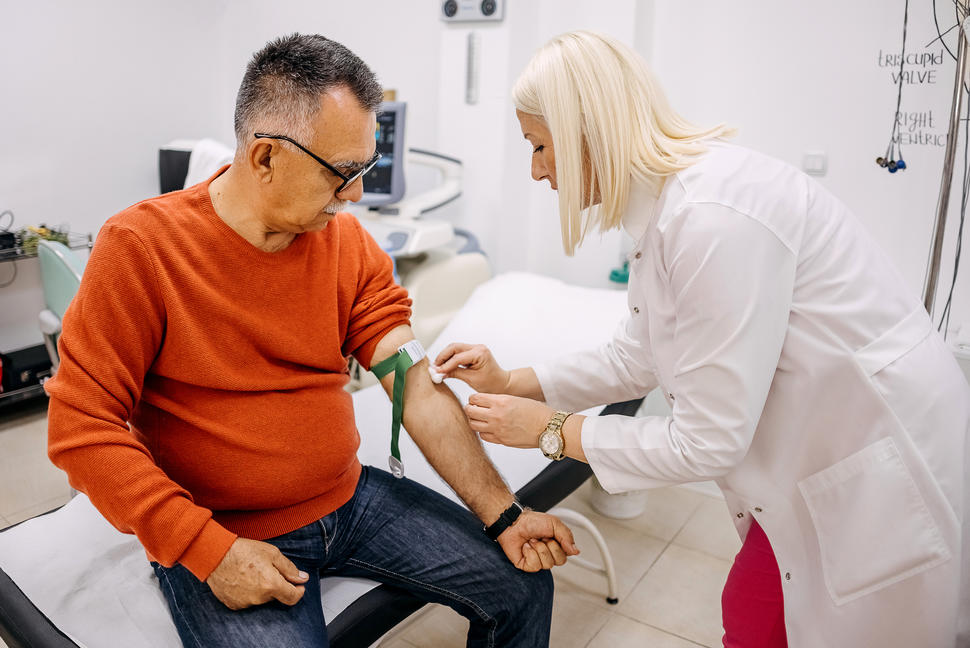What is the Vanguard Study?
The Vanguard Study on Multi-Cancer Detection Tests is a study to help researchers learn more about how to use new technologies for cancer screening called multi-cancer detection (MCD) tests.
The Vanguard Study is a pilot cancer screening study for people who do not have cancer. Each participant will be randomly assigned to one of three groups, and everyone will have blood samples taken.
Two groups will have their blood tested with one of two MCD tests: the Avantect MCD Test® by ClearNote Health or the ShieldTM MCD Test by Guardant Health. The third group will not have their blood tested with an MCD test. Everyone is encouraged to have standard cancer screening tests during the study.
Who is eligible to participate in the Vanguard Study?
People aged 45-75 who do not currently have cancer and have not had a cancer diagnosis in the past 5 years are eligible for this study. The Vanguard study will enroll up to 24,000 people.
What are multi-cancer detection tests?
Multi-cancer detection (MCD) tests are designed to detect biological substances released into the bloodstream that indicate cancer may be present. Each MCD test screens for several kinds of cancers. No MCD tests screen for every type of cancer. When a test comes back abnormal (or positive), further testing is needed to find out if cancer is present.
As a screening test, MCDs are not perfect: sometimes a test is positive when the person does not have cancer and sometimes it is negative when a person does have cancer.
To learn more about MCD tests, please visit Questions and Answers about MCD Tests.
Why is the Vanguard Study being done?
This study is being done to get data about how well two new types of MCD tests work as cancer screening tools. The study will also help to better understand how patients and their doctors make decisions about health care when an MCD test comes back with a normal (negative) or abnormal (positive) result.
It is important to study these tests in clinical trials to better understand who should get these tests, what should be done after receiving a positive or negative test result, and whether these tests can save lives from cancer.
This pilot study is the first part of a larger plan to evaluate how well MCD tests work across different communities in the United States, for detecting a number of different cancers.
What happens once someone enrolls in the Vanguard Study?
Participants will give a blood sample when they enroll and 1 year later. They will also fill out questionnaires about their health at enrollment and 1 year later.
How can I learn more about the Vanguard Study?
Each local site has its own recruitment timeline and process. For more information, including participating in the study in your local area, visit:
- The ClinicalTrials.gov page for The Vanguard Study: Testing a New Way to Screen for Cancer
- Fred Hutch Cancer Center Vanguard Study page
- Accrual, Enrollment, and Screening Site (ACCESS) Hubs for site names and locations
- This interactive map of CSRN ACCESS Hubs to search for recruitment sites near where you live.
The Vanguard Study is part of the NCI-supported Cancer Screening Research Network (CSRN) and is coordinated by the Fred Hutch Cancer Center.
